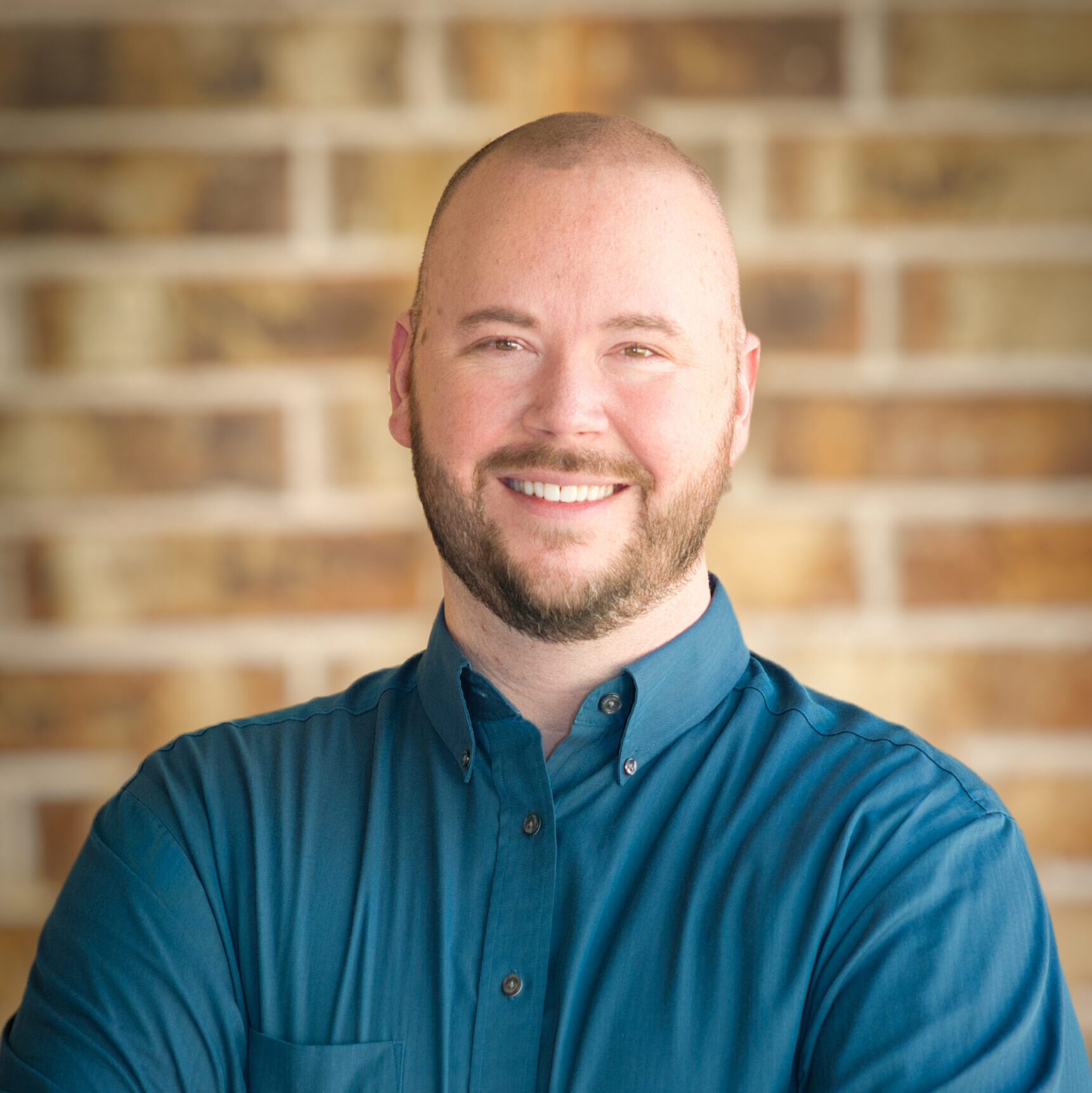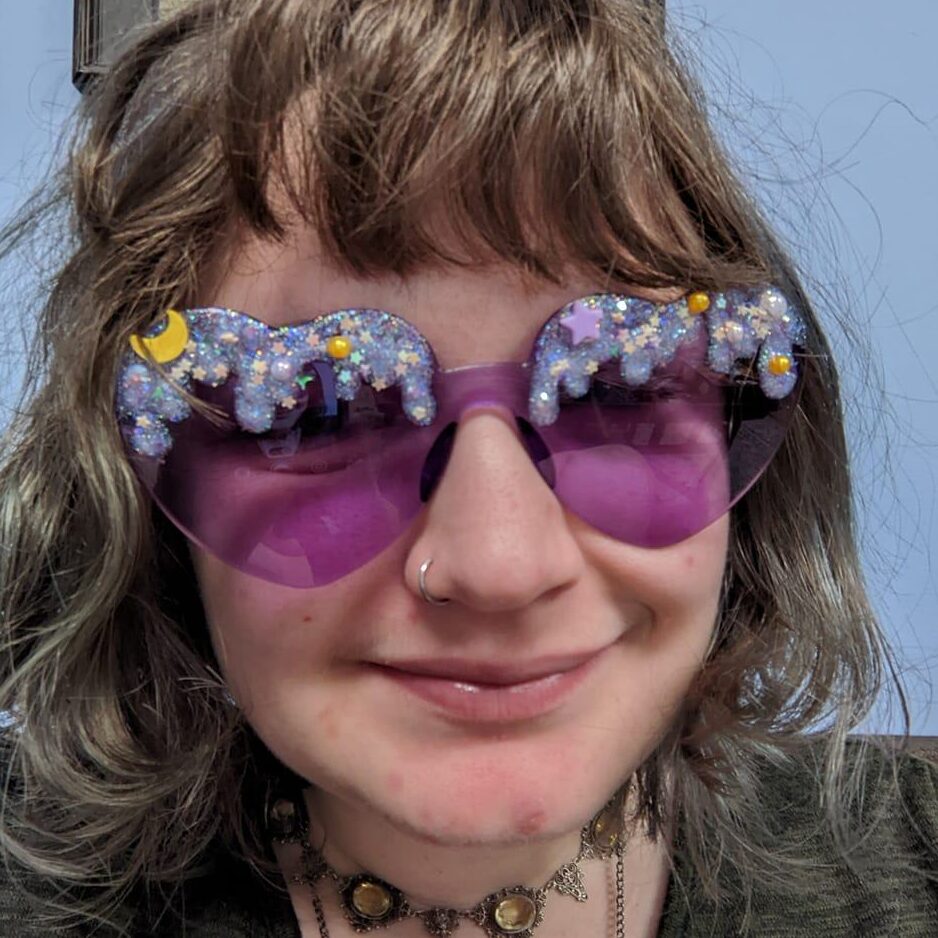As the only openly gay guy in his small Illinois town, seventeen-year-old Jonathan Daniels feels like his options for love are essentially non-existent. With no immediate prospects and prom on the horizon, he’s preparing for another year alone until a new kid, Chance, catches his eye. Unbeknownst to Jonathan, his best friend, Destiny, has a history with Chance, and his arrival has consequences.
After years apart, reincarnated gods Destiny and Chance have an opportunity to prove who is more powerful while learning how to deal with the reality of being in a much weaker, mortal body. To test their abilities, Chance suggests that Jonathan is the ideal candidate for their unique brand of “help.” With love and bragging rights on the line, the two former all-powerful gods do anything they can to win, but when the things they’ve changed start correcting course, it’s everyone for themselves, and Jonathan gets caught in the crosshairs.
We spoke with YA author Kenneth Creech about his newest book Fate, Coincidence, and Other Curse Words. Creech shared about Greek mythology, writing a neurodivergent main character, and what comes next. This interview has been edited and condensed for clarity.
One of your main characters, Jonathan, has ADHD, though that’s never specified since it is not a focus in the story. How did you go about his experience with ADHD? What kinds of research did you do to portray his neurodiversity?
When I started writing this story back in 2019, I didn’t intend for Jonathan to be neurodivergent, but there were aspects of his character that were based on me and my lived experience, or he was reacting the way I would have reacted when I was his age.
During the COVID-19 closures, I spent a lot of time on social media, and I started to realize my algorithm was giving me a lot of autism and ADHD content. An overwhelming amount of content, in fact. I have always had friends on the spectrum and grew up with a friend who was diagnosed with ADHD, but I never identified myself with the way he acted, so I never thought that could be me. But seeing the content on TikTok from various creators made me begin to realize, for the first time, that there are different types of ADHD and that it can manifest itself in different ways. It’s not just an inability to sit still or focus; it can be difficulty changing routines or leaving the expected.
When I read the book now, I see it so clearly. This is a teenager with anxiety that is well beyond the expected level for a teenager. His mood changes at the drop of a hat (sometimes from seemingly minor issues), and while he doesn’t necessarily have low self-esteem, he doesn’t see himself as being equal to some of the other characters in the book. I never really got into his sleep patterns, but in my mind, he always had issues falling asleep, so he spends many nights staying up until the very early morning hours texting with people.
It’s almost funny to me now, that I had no idea I was writing this very obviously into this character, because I remember when I was writing it feeling like these were perfectly normal, healthy, well-adjusted ways of behaving that the average person would find relatable. And now I see that I only thought that way because of my neurodivergence.
Greek mythology is a big part of your book, with Caerus and Lachesis as central characters. What drew you to these particular figures?
I love this question! I have been drawn to Greek mythology since I was a child. In elementary school, there was a giant illustrated book about the Greek gods, and I used to check it out constantly. In high school, I read the Illiad for fun and as a result, I began to ask people why they thought things happened in our lives. Whether they were fated or if they were all just coincidental. I asked people that question for years and years, always interested in their answers and never feeling like I had the “right” answer. I wanted to hear their take on things.
Then one day I saw a drawing of two people talking to each other, and it went something like: “Look who I ran into,” said Coincidence. “Oh, please,” replied Fate, “this was meant to be.” That got my mind racing. What if the Greek gods returned to the modern world and interacted with real people? What would that look like? What would happen?
Lachesis is the second Fate; she measures the thread of life, so she decides how long a mortal lives and assigns their destiny. When I was deciding which Fate to have in the story, I wanted to make sure it was the one that would be most involved in the actual lives of the mortals and who would be more engaged than the one who decided their path in life and how long that life would last?
Caerus is technically the God of Opportunity, not coincidence, but I still felt like that was enough of an opposition to destiny for the conflict between them to work. He manipulates things around him to work in his favor, and if you’re quick enough, you can also take advantage of it before it disappears.
I knew when I was creating this story that I wanted to offer readers a wider range of sexual orientations with which they could potentially identify as well. Jonathan is gay, Lachesis is aro/ace because she cares for everyone but in a completely platonic way, and Caerus is pansexual because, well, he’s the God of Opportunity. The two gods end up being reincarnated, so as teenagers, they’re expressing themselves and these orientations, which I thought was a fun way to explore what it might be like to come of age realizing you’re gay, pan, or aro/ace.
The book is YA fantasy romance. What are aspects of these genres that you love, and are there any tropes you try to avoid?
One of my favorite aspects of the genre, which I try to include in my work, is found family. I think, especially with queer stories and queer lives, found family is often so important that showing that in our stories is part of authentic storytelling. Jonathan has a fantastic mother who loves and supports him, and still, his friends become an extension of his family by the end of the novel. I think for so many LGBTQ+ people, our friends do become our families, even when our families are as amazing as Jonathan’s.
Another theme I include in my novels is self-acceptance. I never write characters who dislike themselves for being or struggle with who they are. This is not to say that doesn’t happen in the real world, but in my contemporary fantasy world, while people may need time to figure out the truth about themselves or to share that truth with others, they never dislike themselves because of who they are. In my first novel, my main character discovers he isn’t human and goes through a process like coming out. In this novel, a couple of characters have to deal with the realities of accepting themselves and deciding what to share and when to share it with others.
Tropes I try to avoid, in this story especially, was anyone being overpowered. Jonathan is just a typical teenager living his life, and then two former Greek gods show up, but their powers have been greatly reduced. As they battle it out for supremacy, they’re hardly at the top of their game. I also try to avoid insta-love or perfect love in my stories. Insta-lust happens pretty frequently. I write about teens, usually teen boys, so they’ve got a lot of hormones raging and find plenty of people hot, but I do try to give any relationships space to develop more naturally over time when I can.
I love Love, but as a teen, I did not find it, and I know that most teens will probably not meet the person they will spend the rest of their lives with as teens, either, so I try to prepare them for that by giving the relationships bumps in the road. My characters don’t always get it right their first or second time. And I think giving the impression that it’s easy to find a perfect relationship where nothing ever goes wrong your first time around isn’t beneficial to young readers.
What are your writing plans for the future?
I am mostly beta reading and developmental editing for others these days, but I am slowly working on my fourth novel, a modern twist on a classic story. It features a coven of witches living in the Pacific Northwest, with two male main characters who are both on the spectrum, and I’m hoping to finish by the summer of 2025.
What are some of your favorite books?
Some of my favorite books include:
- The Charm Offensive by Alison Cochran
- Forever is Now by Mariama J. Lockington
- The Sunbearer Trials by Aiden Thomas
- The Rainbow Boys Series by Alex Sanchez
- The Midnight Texas Series by Charlaine Harris
Anything else you would like to add?
Thank you so much for your time, I had a lot of fun with this!


